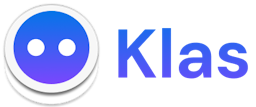Top 7 Trainings Recommended for Every Human Resources Team


HR teams are continuously facing challenges from navigating remote work dynamics to managing diverse, multi-generational teams, and the traditional HR documentation is no longer enough.
The most successful HR teams are the ones committed to continuous learning. According to statistics, companies that invest in comprehensive HR training see 24% higher profit margins and 218% higher revenue per employee compared to those that don't.
So, what exactly should your HR team be learning to stay ahead of the curve? Let's learn about the top seven trainings that every HR team needs to master.
Training Recommended for Every Human Resources Team
1. Organisational Development
Think of organisational development as your company's GPS. Just as you wouldn't embark on a road trip without navigation, you can't guide your organisation through change without understanding how to develop and transform it effectively.
Organisational development training equips your HR team with the skills to design and implement strategic changes. They'll learn how to assess your company's current culture, identify areas for improvement, and create sustainable transformation plans. This training covers change management strategies, team dynamics, and how to build resilient organisations that thrive during uncertainty.
Also read: How to Thrive Financially in 2025
Why does this matter? Companies with strong organisational development practices are 5 times more likely to be high-performing and 3.5 times more likely to outperform their competitors.
2. Diversity, Equity, Inclusion & Belonging
Research shows that diverse companies are 35% more likely to outperform their competitors, yet many organisations still struggle with creating truly inclusive environments. DEIB training goes beyond basic compliance. It transforms your HR team into experts who create a truly authentic workplace culture.
This training teaches them how to identify and eliminate unconscious bias in hiring, create inclusive policies that work for everyone, and foster a sense of belonging where all employees can bring their authentic selves to work. They will learn practical strategies for addressing microaggressions, designing equitable promotion processes, and measuring the success of their DEIB initiatives.
3. HR Metrics and Dashboarding
Remember the days when HR decisions were made based on assumptions? Those days are long gone. Today's successful HR professionals are data-driven decision makers who can turn numbers into actionable insights.
HR metrics and dashboarding training teaches your team how to collect, analyse, and present HR data in ways that drive business decisions. They will master key performance indicators like employee turnover rates, time-to-hire, engagement scores, and return on investment for training programs. More importantly, you'll learn how to translate these metrics into compelling stories that influence executive decisions and secure budget approvals.
Also read: Top 6 Online Teaching and Learning Platforms in 2025
4. Strategic Talent Acquisition
Finding the right talent has never been more challenging. With unemployment rates fluctuating and skills gaps widening, your HR team needs to become strategic talent hunters, not just resume reviewers.
Strategic talent acquisition training transforms your approach to hiring from reactive to proactive. They will learn how to build talent pipelines before you need them, use employer branding to attract top candidates, and implement assessment techniques that predict job success. This training also covers the latest recruiting technologies and how to create candidate experiences that make top talent choose you over your competitors.
Using Klas Enterprise, companies can create impressive talent acquisition training programs that double as employer branding opportunities. The platform's ability to host large-scale sessions (up to 5,000 participants) makes it perfect for virtual job fairs, while recorded sessions can be repurposed as recruitment content. HR teams can also use Klas' course creation features to develop onboarding programs that wow new hires from day one.
5. Artificial Intelligence for HR
Artificial intelligence isn't coming to HR; it's already here. From chatbots handling employee questions to AI-powered recruitment tools, technology is improving how HR work gets done.
AI for HR training helps your team navigate this technological revolution confidently. They will discover how to leverage AI for resume screening, employee engagement surveys, performance predictions, and personalised learning recommendations. But it's not just about the tools. They will also learn the ethical considerations, potential biases, and how to maintain the human touch that makes HR truly effective.
Klas Enterprise puts your HR team ahead of the AI curve by offering cutting-edge learning experiences. The platform's smart features, like automated reminders via email and SMS, give HR professionals firsthand experience with AI-powered engagement tools. As your team learns about AI in HR, they're simultaneously experiencing how technology can enhance rather than replace human connection in learning environments.
Also read: The Importance of Measuring Your Employee L&D Progress
6. Performance Management
Traditional annual performance reviews are dead, and good riddance! Modern performance management is about continuous feedback, goal alignment, and employee development that works.
Performance management training teaches your team how to design systems that motivate rather than demotivate employees. They will learn techniques for giving constructive feedback, setting SMART goals, conducting meaningful career development conversations, and creating performance improvement plans that improve performance. This training also covers how to handle difficult conversations with confidence and compassion.
Klas Enterprise's team management features make it ideal for practising performance management skills in real-time. HR teams can use the platform to create cohort-based learning experiences, track individual progress through custom dashboards, and facilitate peer feedback sessions. The direct messaging feature enables private coaching conversations, while group chats support team-based performance discussions.
7. Communication and Soft Skills
At the end of the day, HR is all about people. Strong communication, empathy, and conflict resolution skills are non-negotiable.
This training develops your team's ability to listen actively, communicate with empathy, resolve conflicts diplomatically, and build trust across all levels of the organisation. You'll practice difficult conversations, learn to adapt your communication style to different audiences, and master the art of influence without authority.
Also read: What is Klas Enterprise? Everything You Need to Know
Frequently Asked Questions
How often should HR teams undergo training?
HR teams should engage in continuous learning throughout the year. We recommend dedicating at least 40 hours annually to professional development, with quarterly skill-building sessions and monthly knowledge updates to stay current with industry trends and legal changes.
Can small HR teams benefit from the same training as large departments?
Yes. These seven training areas are scalable and beneficial regardless of team size. Small HR teams often benefit even more because each member wears multiple hats and needs diverse skills. Online platforms like Klas make comprehensive training accessible and affordable for teams of any size.
How do we measure the ROI of HR training investments?
Track metrics like employee retention rates, time-to-hire improvements, employee engagement scores, and productivity measures before and after training. Many organisations see measurable improvements within 3-6 months, including reduced turnover costs and increased employee satisfaction scores.
Should we prioritise certain training over others?
While all seven areas are important, start with communication and soft skills as your foundation, then add organisational development and performance management. Once these basics are solid, layer in the more specialised training like AI for HR and advanced metrics. The key is building skills progressively rather than trying to master everything at once.



